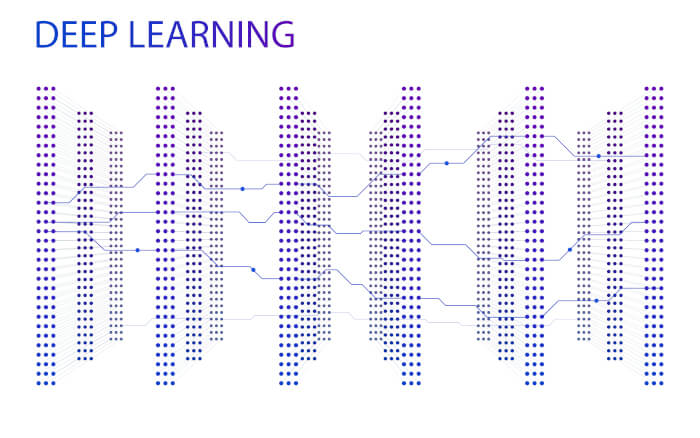Chainer is a Python-based open source deep learning framework aiming at flexibility.
It provides automatic differentiation APIs based on the define-by-run approach (a.k.a. dynamic computational graphs) as well as object-oriented high-level APIs to build and train neural networks. It also supports CUDA/cuDNN using CuPy for high performance training and inference.
Chainer’s seeks to provide a different perspective – it lets you build the computational graph “on-the-fly” during training.
Chainer is cited in many academic papers not only for computer vision, but also speech processing, natural language processing, and robotics.
Features include:
- Chainer is developed in Python, allowing for inspection and customization of all code in Python and understandable python messages at run time.
- Supports CUDA computation. It only requires a few lines of code to leverage a GPU. It also runs on multiple GPUs. It includes a GPU-based numerical computation library named CuPy. CuPy is a NumPy-equivalent array backend for GPUs included in Chainer, which enables CPU/GPU-agnostic coding, just like NumPy-based operations. NumPy based syntax for working with arrays, thanks to CuPy implementation
- Broad and deep support – Chainer is actively used for most of the current approaches for neural nets (CNN, RNN, RL, etc.), adds new approaches as they’re developed.
- Provides imperative ways of declaring neural networks by supporting Numpy-compatible operations between arrays.
- Supports various network architectures including feed-forward nets, convnets, recurrent nets and recursive nets. It also supports per-batch architectures.
- Hardware acceleration support:
- NVIDIA CUDA / cuDNN.
- Intel CPU (experimental).
- Multi-GPU data parallelism.
- Multi-GPU model parallelism.
- OOP like programming style.
- Native trainer abstraction. Chainer’s training framework aims at maximal flexibility, while keeps the simplicity for the typical usages. Most components are pluggable, and users can overwrite the definition.
- Native reporter abstraction.
- Extension libraries.
- Fully customizable.
Website: chainer.org
Support: Forum, GitHub Code Repository
Developer: Preferred Networks, inc
License: MIT License
Requirements:
- Python – supported versions 2.7.6+, 3.4.3+, 3.5.1+ and 3.6.0+.
- NumPy – supported versions: 1.9, 1.10, 1.11, 1.12 and 1.13.
Chainer is written in Python. Learn Python with our recommended free books and free tutorials.
Return to Deep Learning with Python
| Popular series | |
|---|---|
| The largest compilation of the best free and open source software in the universe. Each article is supplied with a legendary ratings chart helping you to make informed decisions. | |
| Hundreds of in-depth reviews offering our unbiased and expert opinion on software. We offer helpful and impartial information. | |
| The Big List of Active Linux Distros is a large compilation of actively developed Linux distributions. | |
| Replace proprietary software with open source alternatives: Google, Microsoft, Apple, Adobe, IBM, Autodesk, Oracle, Atlassian, Corel, Cisco, Intuit, SAS, Progress, Salesforce, and Citrix | |
| Awesome Free Linux Games Tools showcases a series of tools that making gaming on Linux a more pleasurable experience. This is a new series. | |
| Machine Learning explores practical applications of machine learning and deep learning from a Linux perspective. We've written reviews of more than 40 self-hosted apps. All are free and open source. | |
| New to Linux? Read our Linux for Starters series. We start right at the basics and teach you everything you need to know to get started with Linux. | |
| Alternatives to popular CLI tools showcases essential tools that are modern replacements for core Linux utilities. | |
| Essential Linux system tools focuses on small, indispensable utilities, useful for system administrators as well as regular users. | |
| Linux utilities to maximise your productivity. Small, indispensable tools, useful for anyone running a Linux machine. | |
| Surveys popular streaming services from a Linux perspective: Amazon Music Unlimited, Myuzi, Spotify, Deezer, Tidal. | |
| Saving Money with Linux looks at how you can reduce your energy bills running Linux. | |
| Home computers became commonplace in the 1980s. Emulate home computers including the Commodore 64, Amiga, Atari ST, ZX81, Amstrad CPC, and ZX Spectrum. | |
| Now and Then examines how promising open source software fared over the years. It can be a bumpy ride. | |
| Linux at Home looks at a range of home activities where Linux can play its part, making the most of our time at home, keeping active and engaged. | |
| Linux Candy reveals the lighter side of Linux. Have some fun and escape from the daily drudgery. | |
| Getting Started with Docker helps you master Docker, a set of platform as a service products that delivers software in packages called containers. | |
| Best Free Android Apps. We showcase free Android apps that are definitely worth downloading. There's a strict eligibility criteria for inclusion in this series. | |
| These best free books accelerate your learning of every programming language. Learn a new language today! | |
| These free tutorials offer the perfect tonic to our free programming books series. | |
| Linux Around The World showcases usergroups that are relevant to Linux enthusiasts. Great ways to meet up with fellow enthusiasts. | |
| Stars and Stripes is an occasional series looking at the impact of Linux in the USA. | |
